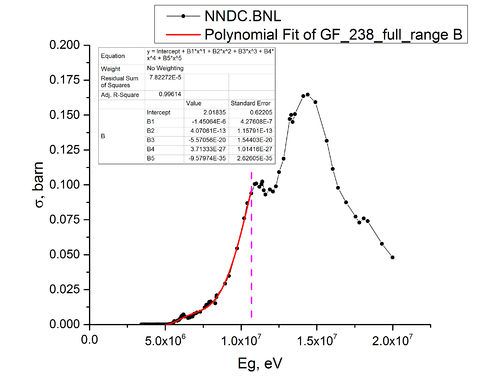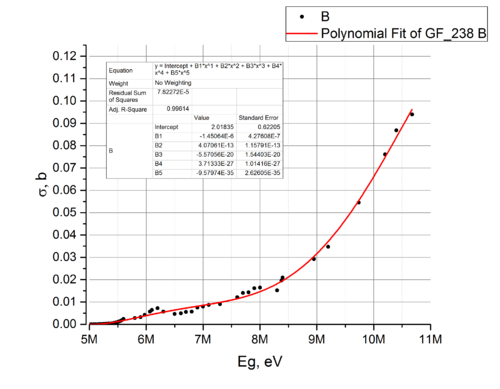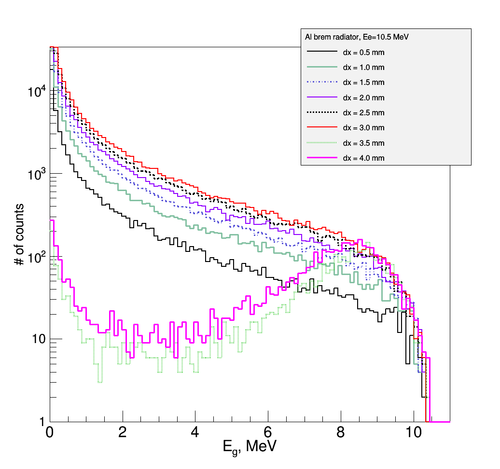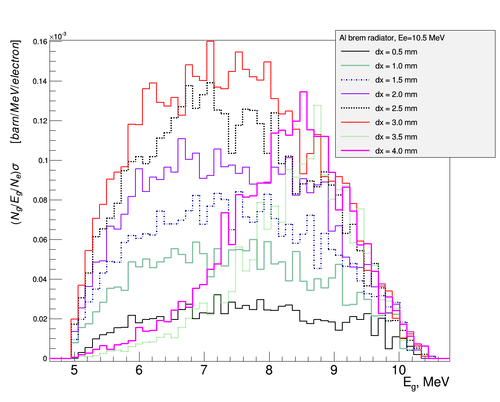Brem converter optimization
The optimization of the photon yield from Al bremsstrahlung converter to get the maximum reaction rate in the case of U-238 target was simulated using Geant4 for the incident electrons with the energy E = 10.5 MeV and w/o the electron beam divergence.
The total cross section for U-238 target was taken fron nndc/BNL web site and provided below:
Since the electron energy is 10.5 MeV the photons will have maximum energy of 10.5 MeV. The information on the photofission cross section was obtained for the photon energies in the range of [5-10.5] MeV using polynomial fit and presented below for the magnified region of the U-238 cross section vs photon energy plot:
The photon yield as a function of the photon energy simulated for different bremsstrahlung converter lengths is provided below. In each case of the converter length the number of the incident electrons was equal to . No collimation cuts were applied.
After the normalization of the total yield to the number of incident electrons and photon energy, and weighting the yield by the U-238 cross section, the following photon yield was obtained (no collimation cuts were applied) :
As can be seen for the given U-238 target the highest reaction rate would be for the case of 3 mm Al radiator, assuming that all the photons composing the above distribution reach the target.



